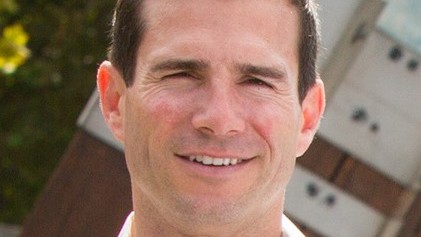Ask a Fund Manager
The Motley Fool chats with fund managers so that you can get an insight into how the professionals think. In part I of this edition, Kardinia Capital's portfolio manager, Kristiaan Rehder, shares his insights on the Bennelong Kardinia Absolute Return Fund's long/short strategy.
Motley Fool: How would you describe your fund to a potential client?
Kristiaan Rehder: We are what's referred to as an absolute return fund. We aim to generate positive returns in all market conditions. One of the ways we do this is our ability to short sell shares. That means we can make money when individual shares or equity markets fall to protect our clients' money in downturns.
As for the investment strategy, we have a very conservative approach to investing. That's achieved through very conservative risk control.
Our net exposure is limited to 75%. Net exposure is calculated by subtracting the size of the short book from the long book. Effectively it indicates the level of market exposure the fund is exposed to.
That means there'll always be a buffer in our strategy to ensure that the capital is protected if there is a market downturn due to some unforeseen event.
We don't use financial leverage and we have very conservative stop losses in place. If the position moves against us by 15%, we close it out.
MF: Now your fund is no newcomer to the markets.
KR: Right, the fund has been built over 15 years.
One of the nice things about having such a long track record is the strategy has been tested in both bull markets and bear markets. And since the strategy doesn't take much risk, that means the volatility tends to be lower than the underlying market.
Back in 2008 during the GFC when the market fell 40%, the strategy generated a positive return. And again last year, through the pandemic when the market lost over 36%, we only drew down about 3.9%.
MF: What are the pros of also being able to invest on the short side of the market?
KR: One of the benefits of being able to short shares is the ability to protect the portfolio value during times of market downturns. A short book will perform strongly when markets sell off and will provide a safety hedge. I can't emphasise this enough. This is a key reason why this strategy performed so strongly in the previous 2 market dislocations – the GFC and the pandemic.
The short book also enhances the investment universe that we can invest in.
Most long only funds will usually put their pen down and stop the investment process when the fund manager identifies too many red flags in the company they're analysing. With our strategy, we can continue working and potentially profit from that trade by going short.
MF: And what do you see as the biggest cons with going short?
KR: One of the biggest risks with shorting is the takeover risk.
Most companies which we identify as strong shorting candidates often have poor earnings quality, low returns and weak management teams. These are all qualities that larger players will often see as opportunities to restructure and to turnaround.
The current environment is particularly tricky for shorting because we have a situation where the market is steadily rising and interest rates are low, which makes it very conducive to M&A. And we've already seen that starting to really pick up.
Many takeovers occur at very significant premiums, at 30% or more to the last closing price.
So, to short a company which becomes subject to a takeover can be a very painful experience. And your stop loss won't protect you. The stock goes into a trading halt when it reveals the takeover, and once it comes out of that suspension it will gap up immediately.
The way we manage that risk is to diversify our short book and to take smaller positions in individual shorts. So, if they are subject to a takeover then the damage is limited.
MF: What's been your best long investment for the fund over the past year?
KR: One of our best returning positions over the past 12 months has been Neometals Ltd (ASX: NMT).
It's developed a process to recycle lithium-ion batteries. This is going to be a big issue globally. In Europe, most discarded batteries are incinerated, meaning 90% of the batteries' mass is released into the atmosphere. Volkswagen alone have estimated they will have 1 million tonnes of discarded batteries by 2030.
The company has a very low-cost solvent extraction process, which can extract key commodities from those batteries. The 2 most valuable components are the zinc and the nickel.
A number of catalysts have already played out for the company. One of the major catalysts has been the commissioning of the demonstration plant in Germany. It was fully commissioned at the end of October.
Going forward, we expect the feedstock arrangements to secure end of life lithium-ion batteries is not too far away. They're also planning a listing on the London Stock Exchange. And shortly, we expect the final decision on the first North American plant.
**
Tomorrow, in Part 2 of our interview, Kristiaan Rehder unveils 3 quality ASX shares poised to outperform in 2021.
(You can find more information on Kardinia Capital's funds here.)









